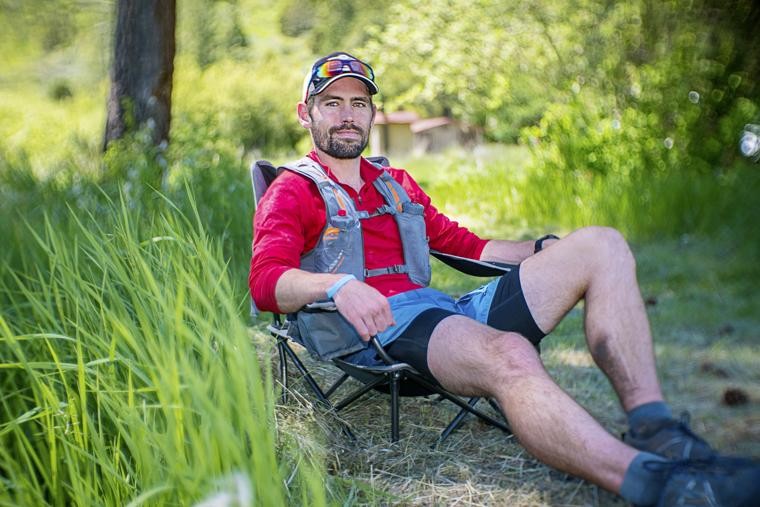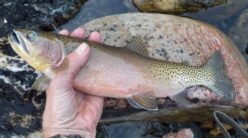POCATELLO — Matt Zabriskie, a Salt Lake City area resident, competed in the 100-mile Scout Mountain Ultra Trail race and came in first place this past weekend.
Zabriskie finished the trail in 21 and a half hours and ran the race entirely on foot.
His run began Friday morning and ended the next morning, with Zabriskie pushing through the night all the way until the finish line.
The race began at Lead Draw and finished at the Mink Creek campgrounds, with the trail leading the runners to summit Old Tom and Scout Mountain.
Thirty-nine people attempted the race, and only 26 of those starters completed the 100 miles.
They all had a total 36 hours to complete the race.
It was Zabriskie's first time in the area and he said, "It was absolutely beautiful," but that "it was really tough, though."
He said that the race featured a lot of steep climbs and was rocky in sections, and that made the trails more difficult. However, he said that it was amazing to see the view from the summits.
Zabriskie said that he ran for about 80 percent and hiked about 20 percent of the trail. When the hills became too steep, he would hike, but otherwise, he would run.
"It's just kind of a balance to figure what effort you can maintain for the whole 100 miles," he said.
Luke Nelson, the race director for the Scout Mountain Ultras, said that this 100-mile run is a difficult one compared to others because of the elevation.
"It's a tough one, and it eats people up," Nelson said.
The Scout Mountain 100-mile run has 23,900 feet of elevation climbed, and 23,900 feet descended.
"It's nearly going up Mount Everest from sea level," Nelson said.
Nelson, who's a professional ultramarathon runner, said that what sets this trail apart from others is that 97 percent of the race is on trail.
"You have to be moving if not running for over 20 hours where the trail surfaces are rocky and loose and kinda nasty," Nelson said.
He continued, "You have to be a lot tougher mentally than you are physically tough because if you can't keep your head together, you won't be able to finish it," Nelson said.
Zabriskie has been running ultramarathons since 2012 and said that he's had to improve his mental and physical game over that time.
When Zabriskie isn't doing hundred-mile runs, he trains by running 90-plus miles per week and climbing in his spare time.
"I think a lot of it comes down to training," Zabriskie said. "Just kind of figuring out your body and conditioning it to be able to do it."
He continued, "So you don't want to go too overboard and max yourself out and not be able to continue, and then at the same time you don't want to put too little effort in and then finish way slower."
Zabriskie said this was his first 100-mile run that has gone well. He's done four total.
Zabriskie's first 100-mile was in 2014, and he said the difference in his mental preservation from then until now was "night and day."
Zabriskie said he's been low on calories, had heat exhaustion, depleted electroytes, and that something has gone wrong every time except the race this past weekend.
The closest thing he said to something going wrong was the 50 mph winds on top of Old Tom.
"When you get into these events you kind of learn to just dismiss it," he said. "You just accept whatever's coming your way and just kind of brush it off."
Zabriskie said it's a huge step to go from a 50-mile run, one of the other divisions the Scout Mountain Ultras offer, to a 100-mile and that it is primarily a mental game even though it's important to stay in shape as well.
"The drive to persevere is the biggest thing," Zabriskie said.
He continued, "If you aren't 100 percent dedicated to finishing, it would be easy to come up with excuses to stop."
Zabriskie estimated it would take him two weeks to recover from the run and resume his normal training schedule.



